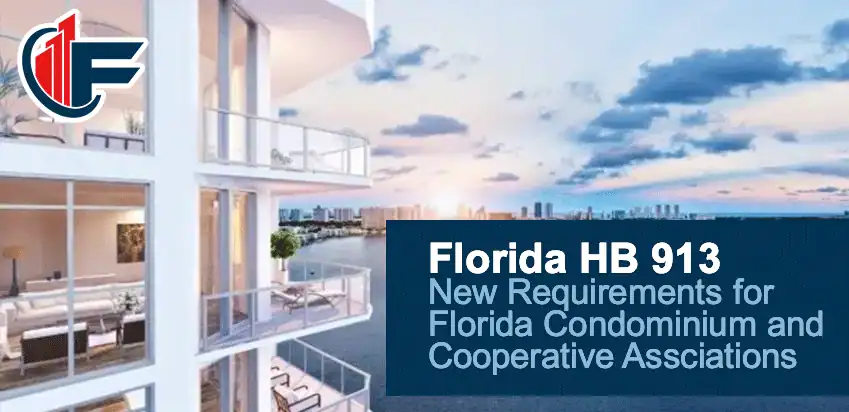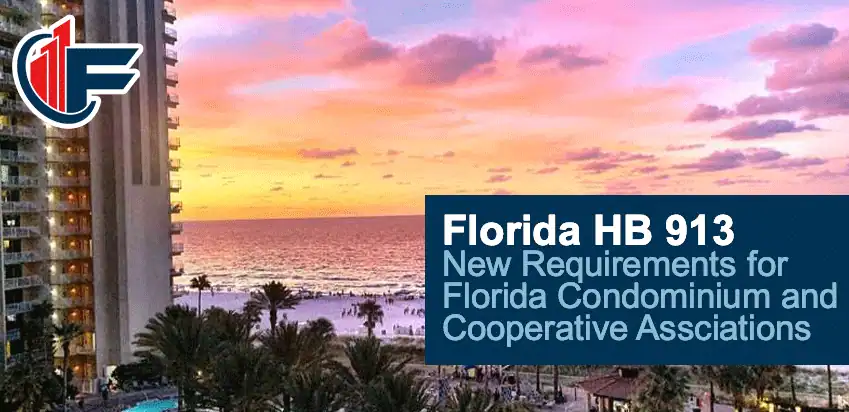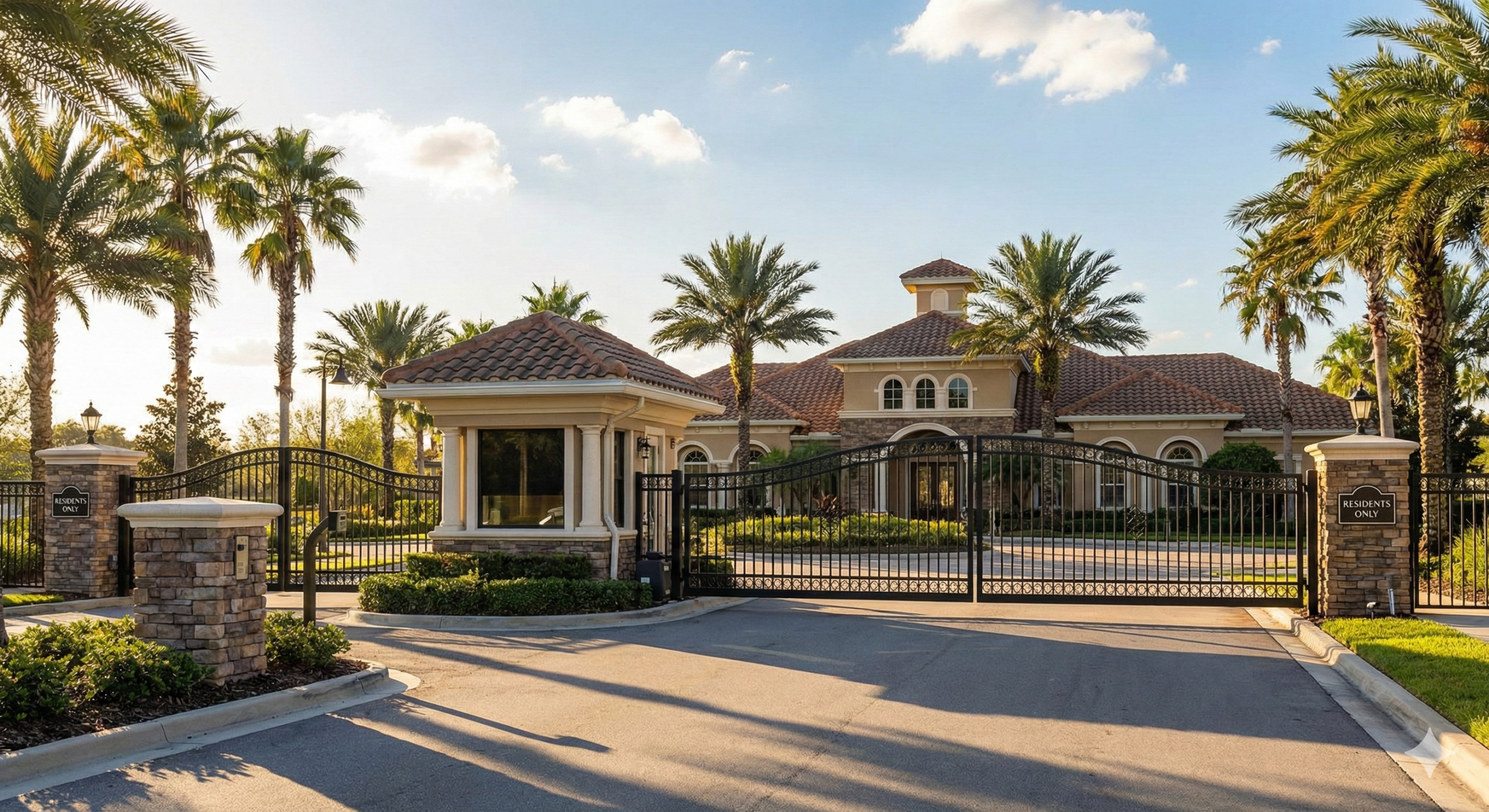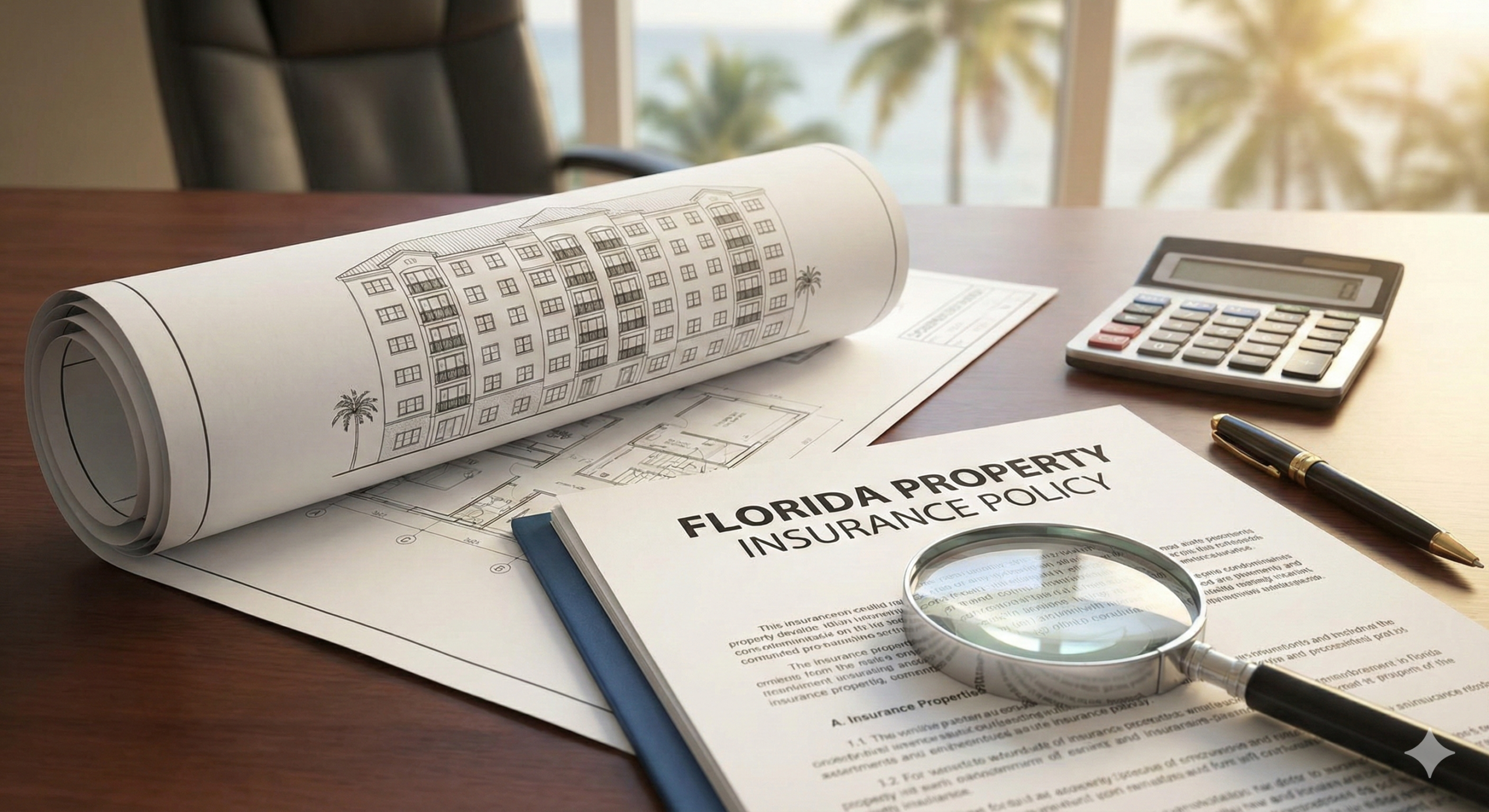Reserve studies are vital for Homeowners Associations (HOAs) and condo associations to plan for future repairs. In Florida, the Structural Integrity Reserve Study (SIRS) was introduced after the 2021 Surfside collapse to ensure building safety. This guide clarifies the differences between traditional and SIRS reserve studies, helping you decide when to use each.
What is a Traditional Reserve Study?
A traditional reserve study is a long-range capital planning tool that helps boards anticipate and prepare for the repair and replacement of their community’s common assets. Felten Property Assessment Team defines it as including both an in-depth analysis of the property’s physical condition and a thorough examination of current reserve funds, presenting a prioritized schedule of capital projects and a funding plan over 30 years. SpectrumAM adds that it analyzes overall components to determine repair or replacement timelines and costs, covering items like roofing, painting, paving, and anything over $10,000, as per Beryl Engineering.
Traditional reserve studies are typically conducted by reserve specialists, who may or may not be licensed engineers, depending on state requirements. They are recommended for all associations by the Community Associations Institute’s Reserve Study Standards, but legal requirements vary by state. For example, Florida requires reserve accounts for all condos, but the scope is broader, including non-structural components like amenities and landscaping
What is a SIRS Reserve Study?
The Structural Integrity Reserve Study (SIRS) is a Florida-specific reserve study mandated by Senate Bill 4-D for condominium and cooperative associations with buildings three stories or higher. Team Complete describes it as designed to ensure funds are reserved for long-term maintenance and replacement of critical structural elements. SIRS requires a visual inspection by a licensed engineer or architect, as noted in Florida Engineering LLC, focusing on key structural components to forecast repair or replacement needs.
The required components, as per Withum, include:
The required components, as per Withum, include:
- Roof
- Load-bearing walls or other primary structural members
- Floor
- Foundation
- Fireproofing and fire protection systems
- Plumbing
- Electrical systems
- Waterproofing and exterior painting
- Windows
- Any other item with a deferred maintenance expense or replacement cost exceeding $10,000 that affects the above
Funding for these components cannot be waived or reduced, ensuring full financial preparedness, as mandated by Florida Statute 718 . SIRS is part of a broader effort to enhance building safety post-Surfside, with deadlines like December 31, 2024, for initial studies, as per Guide to Structural Integrity Reserve Studies.
Key Differences Between Traditional and SIRS Reserve Studies
While both types of reserve studies aim to assist with financial planning, several key differences exist:
- Scope of Components:
- Traditional: Covers a broad range of common area components, including amenities, landscaping, mechanical systems, and structural items, as seen in HOA Reserve Studies . For example, it might include playground equipment or parking lot resurfacing.
- SIRS: Specifically focuses on structural components as defined by Florida law, such as roofs and foundations, ensuring safety and compliance, as detailed in Building Mavens.
- Legal Requirements:
- Traditional: May be required or recommended depending on state laws and association bylaws, but often optional, as per Reserveadvisors. In Florida, traditional studies are part of general reserve requirements but not specifically mandated for structural integrity.
- SIRS: Mandatory for buildings three stories or higher in Florida, with non-compliance considered a breach of fiduciary duty, as noted in Kipcon Engineering.
- Inspection Qualifications:
- Traditional: Conducted by reserve specialists, who may not need to be licensed engineers, focusing on general condition assessments, as per What is a Reserve Study.
- SIRS: Requires a visual inspection by a licensed engineer or architect, ensuring professional structural evaluation, as emphasized in Structural Integrity Reserve Studies Q & A.
- Funding Requirements:
- Traditional: Associations may have the option to waive or reduce reserve funding, depending on state laws, as seen in pre-SB 4-D practices in Florida, per Beryl Engineering ().
- SIRS: Funding for specified structural components cannot be waived or reduced; full funding is required, aligning with Florida SB 4-D Building Safety Law.
Aspect | Traditional Reserve Study | SIRS Reserve Study |
|---|---|---|
Scope | Broad, includes all common area components | Specific, focuses on structural components (10 items) |
Legal Requirement | Optional, recommended by CAI | Mandatory for Florida buildings 3+ stories |
Inspection | By reserve specialists, may not be engineers | By licensed engineer or architect, visual inspection |
Funding | May be waived or reduced, varies by state | Cannot be waived, full funding required |
Purpose | General financial planning for repairs/replacements | Ensures structural integrity and safety |
Deadline | No specific deadline, typically every 3-5 years | Initial by Dec 31, 2024, then every 10 years |
When to Use Each Type of Study
Traditional Reserve Study: Essential for all HOAs and condo associations to plan for the maintenance and replacement of common area components. It provides a comprehensive financial plan for the association’s future needs, covering a wide range of items from playground equipment to parking lot resurfacing, as recommended by SpectrumAM. It’s particularly useful for buildings under three stories in Florida, where SIRS is not required.
- SIRS Reserve Study: Required for Florida condominium and cooperative associations with buildings three stories or higher, ensuring that critical structural components are adequately funded and maintained, enhancing safety and longevity, as mandated by Florida Reserve Study Requirements. The deadline for initial SIRS was December 31, 2024, and associations must fully fund reserves based on findings by January 1, 2026, per Stone Building Solutions.
For associations with buildings three stories or higher in Florida, it’s advisable to have both a SIRS for structural components and a traditional reserve study for other common area components. This comprehensive approach ensures that all aspects of the property are properly maintained and funded, from the building’s foundation to its recreational facilities, as suggested by Rimkus.
Download Our Free Guide
To learn more about reserve studies and how they can benefit your association, download our free PDF guide, Understanding Reserve Studies, by filling out the form below.
- And more
Conclusion
Understanding the differences between traditional and SIRS reserve studies is crucial for Florida condo associations to comply with state laws and ensure the safety and financial stability of their communities. While traditional reserve studies provide a broad financial plan, SIRS specifically addresses structural integrity, a critical aspect following recent legislative changes. By conducting both types of studies, associations can achieve comprehensive financial planning and safeguard their properties against future risks.
For expert assistance with your reserve study needs, contact FPAT. Our team of licensed professionals is ready to help you navigate these requirements and ensure your association is prepared for the future.
Detailed Analysis of The Difference Between Traditional and SIRS Reserve Studies
This detailed analysis explores the distinctions between traditional reserve studies and Structural Integrity Reserve Studies (SIRS), clarifying their types, uses, and importance for Homeowners Associations (HOAs) and condominium associations, particularly in Florida. Reserve studies are essential financial planning tools to budget for future repairs and replacements, but the introduction of SIRS, mandated by Florida law post-Surfside collapse, adds a new layer of complexity. This report provides a comprehensive breakdown, legal context, and practical guidance for associations navigating these requirements, ensuring compliance and safety.
Background and Context
Reserve studies have long been a cornerstone for association financial planning, helping boards anticipate major repair and replacement projects. The 2021 Surfside condominium collapse, resulting in nearly 100 deaths, highlighted deficiencies in reserve funding, prompting Florida to enact Senate Bill 4-D in May 2022, amended by Senate Bill 154 in 2023. This legislation introduced SIRS, a specialized study for buildings three stories or higher, with a deadline for initial studies by December 31, 2024, as detailed in Florida Reserve Study Requirements. The analysis aims to clarify these study types, ensuring associations understand their obligations and benefits.
Defining Traditional Reserve Studies
A traditional reserve study is a long-range capital planning tool that helps boards anticipate and prepare for the repair and replacement of their community’s common assets. Felten Property Assessment – What is a Reserve Study defines it as including both an in-depth analysis of the property’s physical condition and a thorough examination of current reserve funds, presenting a prioritized schedule of capital projects and a funding plan over 30 years. SpectrumAM – What is a Reserve Study adds that it analyzes overall components to determine repair or replacement timelines and costs, covering items like roofing, painting, paving, and anything over $10,000, as per Beryl Engineering – Structural Integrity Reserve Study.
Traditional reserve studies are typically conducted by reserve specialists, who may or may not be licensed engineers, depending on state requirements. They are recommended for all associations by the Community Associations Institute’s Reserve Study Standards, but legal requirements vary by state. For example, Florida requires reserve accounts for all condos, but the scope is broader, including non-structural components like amenities and landscaping, as noted in HOA Reserve Studies.
Defining SIRS Reserve Studies
The Structural Integrity Reserve Study (SIRS) is a Florida-specific reserve study mandated by Senate Bill 4-D for condominium and cooperative associations with buildings three stories or higher. Team Complete – What is a Structural Integrity Reserve Study? describes it as designed to ensure funds are reserved for long-term maintenance and replacement of critical structural elements. SIRS requires a visual inspection by a licensed engineer or architect, as noted in Florida Engineering LLC – Structural Integrity Reserve Study, focusing on key structural components to forecast repair or replacement needs.
The required components, as per Withum – Reformed Reserve Funding Laws, include:
- Roof
- Load-bearing walls or other primary structural members
- Floor
- Foundation
- Fireproofing and fire protection systems
- Plumbing
- Electrical systems
- Waterproofing and exterior painting
- Windows
- Any other item with a deferred maintenance expense or replacement cost exceeding $10,000 that affects the above
Funding for these components cannot be waived or reduced, ensuring full financial preparedness, as mandated by Florida Statute 718. SIRS is part of a broader effort to enhance building safety post-Surfside, with deadlines like December 31, 2024, for initial studies, as per Guide to Structural Integrity Reserve Studies.
Key Differences and Comparison
While both types of reserve studies aim to assist with financial planning, several key differences exist, as outlined below and summarized in the table:
- Scope of Components:
- Traditional covers a broad range, including amenities and landscaping, as seen in HOA Reserve Studies. For example, it might include playground equipment or parking lot resurfacing.
- SIRS specifically focuses on structural components, such as roofs and foundations, ensuring safety and compliance, as detailed in Building Mavens – SIRS.
- Legal Requirements:
- Traditional may be required or recommended but is often optional, as per Reserveadvisors – Reserve Studies vs. SIRS. In Florida, it’s part of general reserve requirements but not specifically mandated for structural integrity.
- SIRS is mandatory for buildings three stories or higher in Florida, with non-compliance considered a breach of fiduciary duty, as noted in Kipcon Engineering – SIRS Laws.
- Inspection Qualifications:
- Traditional is conducted by reserve specialists, who may not need to be licensed engineers, focusing on general condition assessments, as per What is a Reserve Study.
- SIRS requires a visual inspection by a licensed engineer or architect, ensuring professional structural evaluation, as emphasized in Structural Integrity Reserve Studies Q & A.
- Funding Requirements:
- Traditional funding may be waived or reduced, depending on state laws, as seen in pre-SB 4-D practices in Florida, per Beryl Engineering.
- SIRS funding for specified structural components cannot be waived or reduced; full funding is required, aligning with Florida SB 4-D Building Safety Law.
Table: Comparison of Traditional and SIRS Reserve Studies
Aspect | Traditional Reserve Study | SIRS Reserve Study |
|---|---|---|
Scope | Broad, includes all common area components | Specific, focuses on structural components (10 items) |
Legal Requirement | Optional, recommended by CAI | Mandatory for Florida buildings 3+ stories |
Inspection | By reserve specialists, may not be engineers | By licensed engineer or architect, visual inspection |
Funding | May be waived or reduced, varies by state | Cannot be waived, full funding required |
Purpose | General financial planning for repairs/replacements | Ensures structural integrity and safety |
Deadline | No specific deadline, typically every 3-5 years | Initial by Dec 31, 2024, then every 10 years |
Practical Application: When to Use Each
- Traditional Reserve Study: Essential for all HOAs and condo associations to plan for the maintenance and replacement of common area components. It provides a comprehensive financial plan for the association’s future needs, covering a wide range of items from playground equipment to parking lot resurfacing, as recommended by SpectrumAM – What is a Reserve Study. It’s particularly useful for buildings under three stories in Florida, where SIRS is not required, ensuring broad financial planning.
- SIRS Reserve Study: Required for Florida condominium and cooperative associations with buildings three stories or higher, ensuring that critical structural components are adequately funded and maintained, enhancing safety and longevity, as mandated by Florida Reserve Study Requirements. The deadline for initial SIRS was December 31, 2024, and associations must fully fund reserves based on findings by January 1, 2026, per Stone Building Solutions.
For associations with buildings three stories or higher in Florida, it’s advisable to have both a SIRS for structural components and a traditional reserve study for other common area components. This comprehensive approach ensures that all aspects of the property are properly maintained and funded, from the building’s foundation to its recreational facilities, as suggested by Rimkus – What SB 4-D Means.
Conclusion and Recommendations
Understanding the differences between traditional and SIRS reserve studies is crucial for Florida condo associations to comply with state laws and ensure the safety and financial stability of their communities. While traditional reserve studies provide a broad financial plan, SIRS specifically addresses structural integrity, a critical aspect following recent legislative changes. By conducting both types of studies, associations can achieve comprehensive financial planning and safeguard their properties against future risks.
For expert assistance with your reserve study needs, contact FPAT. Our team of licensed professionals is ready to help you navigate these requirements and ensure your association is prepared for the future. To learn more, download our free PDF guide, Understanding Reserve Studies, by filling out the form below.
Key Citations
- Reserveadvisors – What is a Reserve Study
- SpectrumAM – What is a Reserve Study
- Beryl Engineering – Structural Integrity Reserve Study
- Community Associations Institute’s Reserve Study Standards
- Team Complete – What is a Structural Integrity Reserve Study?
- Florida Engineering LLC – Structural Integrity Reserve Study
- Guide to Structural Integrity Reserve Studies
- Building Mavens – SIRS
- Kipcon Engineering – SIRS Laws
- What is a Reserve Study
- Structural Integrity Reserve Studies Q & A
- Florida Reserve Study Requirements
- Stone Building Solutions
- Rimkus – What SB 4-D Means
- Florida Statute 718
- Reserveadvisors – Reserve Studies vs. SIRS
- HOA Reserve Studies








